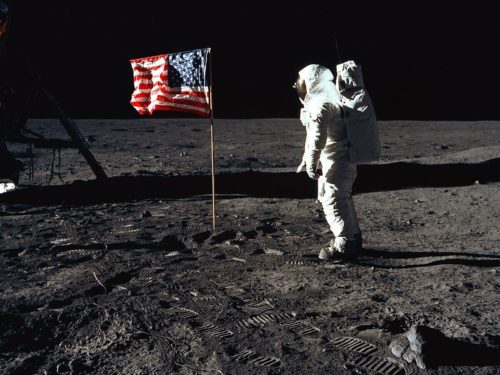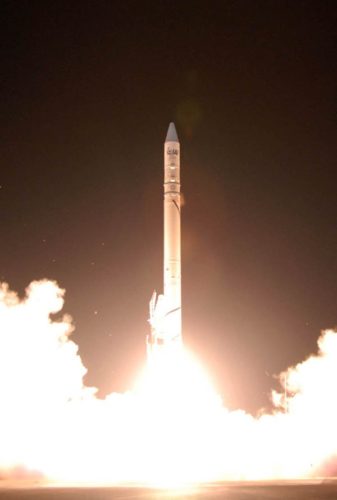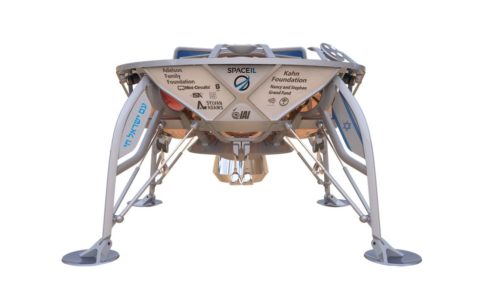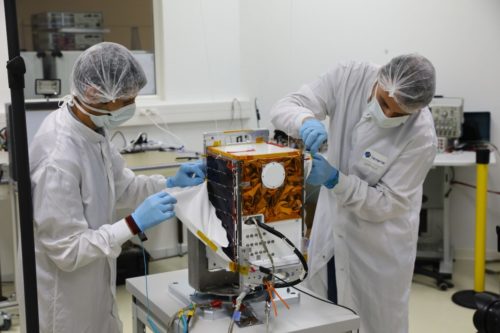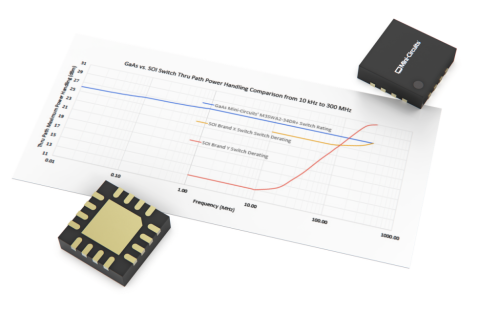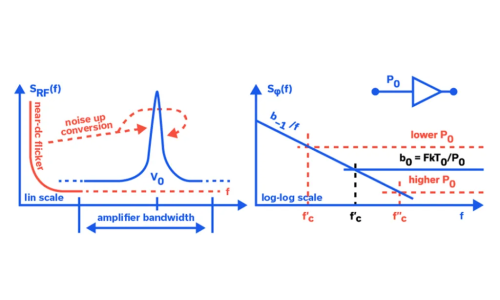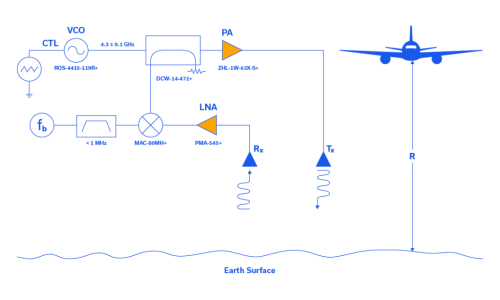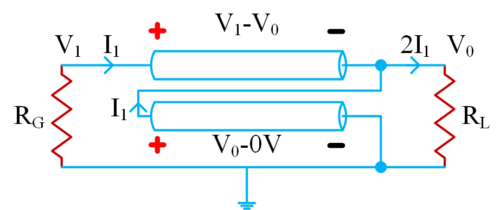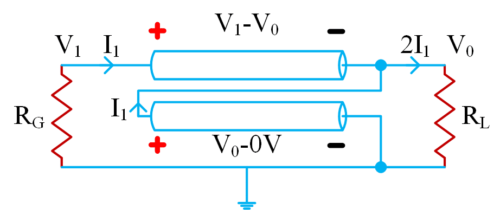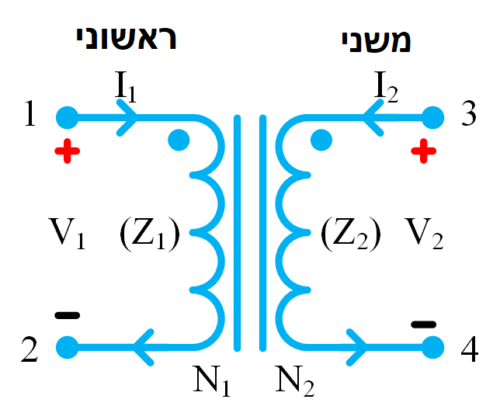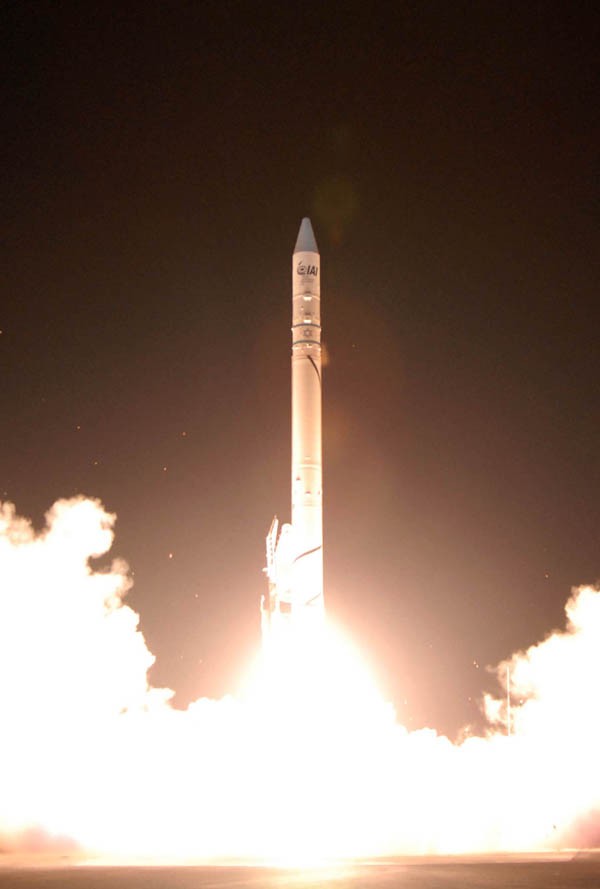
Shavit Space Launch Vehicle
The Israeli Space Industry
Moshe Doubior, Business Development Manager
MCDI, Mini-Circuits Exclusive Representative in Israel
Israel has a lengthy history of accomplishment in space, including technological advancement, applications, and competitive products. The Space Program began in the 1980s, when Israel was the ninth country in the world to successfully launch and position satellites in space. This was an extraordinary achievement for a country of less than 4 million inhabitants at the time.
The primary goal was and continues to be to build a comprehensive infrastructure for space research. Due to security concerns and a lack of resources, Israel has primarily focused on miniaturizing technologies and developing small, light satellites with high resolution, remote sensing, and communication capabilities. Israel is regarded as a world leader in this industry: a small country with a significant technological advantage. The primary activities of Israel’s space industry include satellite development, production, and operation, as well as the selling of communication services and remote sensing.
Israel excels in the development of miniature satellite technologies and methods of launch. Several Israeli groups are now developing microsatellites and nanosatellites based on this technological competence.
Israel’s space industry also concentrates on high-resolution photography satellites in Low Earth Orbit (LEO) and communication satellites in Geocentric Orbit (GEO). Despite a very limited budget, Israel’s Space Program achievements since 1988 are among the most spectacular of Israel’s sophisticated technology industry. Israel’s imaging satellites are considered world leaders in terms of cost-effectiveness and great performance in relation to low weight. The Amos series of five communication satellites, Ofeq satellites, Eros – two photography satellites, the Techsat 2 research satellite, Duchifat, Dido, Venus, and BGUSAT are among Israel’s space satellites.
Learn more about The Israel Space Agency https://www.youtube.com/watch?v=CcMc20T05jI&t=53s
Today, the Israeli space ecosystem is vibrant and growing, with approximately 40 startups (totaling approximately 85 tech and aviation companies) developing new space technologies such as oxygen production from lunar soil, radiation protection gear, micro satellites, propulsion systems, computer and supercomputer systems, quantum computers, IoT, ceramics, scanners, antennas, food tech, cameras, electric ignition systems, probes and landers, rocket propellants, and urban water leakage satellites. In the recent decade, private sector investment in space-related firms has expanded tenfold, reaching 14.5 billion dollars in 2021. Many programs, led by the Israel Space Agency and the Israel Innovation Authority, are now in place to invest in R&D for innovation in space, including a collaboration between the ISA and Space Florida, participation in the European Horizon program, and the Genesis Program, all of which are expected to generate additional traction in this industry.
The Israeli government also recently announced that it will invest nearly $200 million over the next five years in a new program with the Israel Space Agency and the Israel Innovation Authority to further develop the civil space industry as a growth economic engine, support and expand Space R&D, invest in education, and strengthen Israel’s position in the world.
A less understood component of the Space ecosystem today, assisting in answering some of space’s technological needs, is Quantum Computing.
The current and future development of quantum computing is projected to assist the industry achieve new heights by solving classically unsolvable problems through simulation, cryptography, optimization, and machine learning. Israel is fast progressing in this field with startups and research institutes, such as the Weizmann Institute who not only succeeded in building a five-qubit quantum computer (there are only 30 quantum computers in the world and only 10 based on the Ion Trap advanced technology) and are working on a larger one, the WeizQC, that is planned to work with 64 qubits (only achieved to date by Google and the University of Science and Technology of China). https://wis-wander.weizmann.ac.il/space-physics/israel-joins-quantum-computing-club
Other articles in this mini-series:


